
8 refugee activists and changemakers you need to know about
Meet refugee changemakers who are shaping policies, art, traditions, dreams and futures in ordinary - and extraordinary - ways.

Meet refugee changemakers who are shaping policies, art, traditions, dreams and futures in ordinary - and extraordinary - ways.
Right now, more people have been forced to flee their homes than ever before. From the crisis in Ukraine to climate shocks in East Africa, global instability is on the rise - while the right to seek refuge is in retreat.
Yet when refugees are welcomed, their influence on culture is immeasurable. Around the world, displaced people have, and continue to, shape policies, art, traditions, dreams and futures in ordinary - and extraordinary - ways.
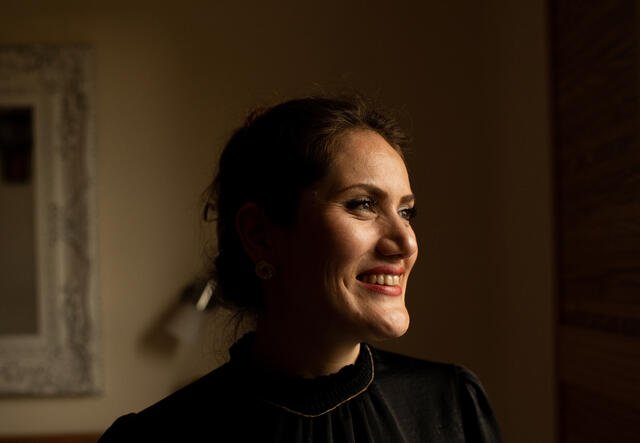
Zahra is an Afghan refugee, journalist and single mom. She and her two children, ages 11 and 10, fled from Afghanistan to the UK in August 2021, forcing her to abandon her dream job as a TV news anchor.
In 2022, Zahra took part in the IRC’s leadership training, which helps refugees become mentors, and now advocates for women’s rights on a global scale. She has also told her story of fleeing conflict to leaders at the National Assembly.
“I want the world to stay with Afghanistan and all in the world who are in danger,” Zahra says. “There shouldn’t be any difference between refugees and how people from different countries are treated. I want equality for everyone, whether they’re from Ukraine or Afghanistan or anywhere else, they should have the same rights.”
Since settling into the UK, Zahra has dreamed of studying for a Master’s degree and restarting her career as a journalist. Recently this became a reality, when Zahra secured a dream job freelancing with the BBC.
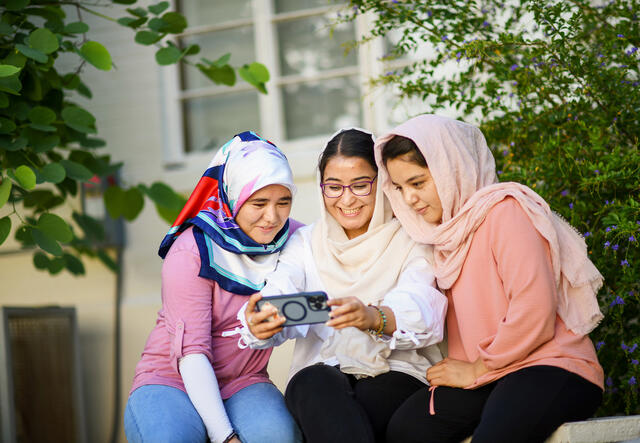
In August of 2021, Arifa, Zahra and Hadisa found themselves stranded outside Kabul airport with a group of 170 students. The Taliban had just taken control of the country and they were among the thousands hoping to evacuate - even if it meant leaving their families behind. The situation was tense and dangerous.
Today, they’re enrolled at Arizona State University in the United States, their days packed with activities and studying.
Zahra is studying towards a degree in law and hopes to one day work for the U.N. Hadisa, a talented skateboarder, is studying software engineering.
Hadisa’s dream is to find ways to help those still struggling in Afghanistan.“I really would like to do something for the girls of Afghanistan, especially for those who have lost their parents or don't have someone to support them,” she says. “I’m going to bring change to the next generation of Afghanistan.”
Arifa is studying cybersecurity and is an active athlete; passionate about martial arts, including taekwondo.
The students are all in agreement that they want to dispel stereotypes about Afghanistan. “It hurts me when people say, ‘I’m sorry that you are from that country,’” says Hadisa.
“We face many challenges,” adds Arifa, “but we still try our best. We are stronger and more knowledgeable than the world thinks.”
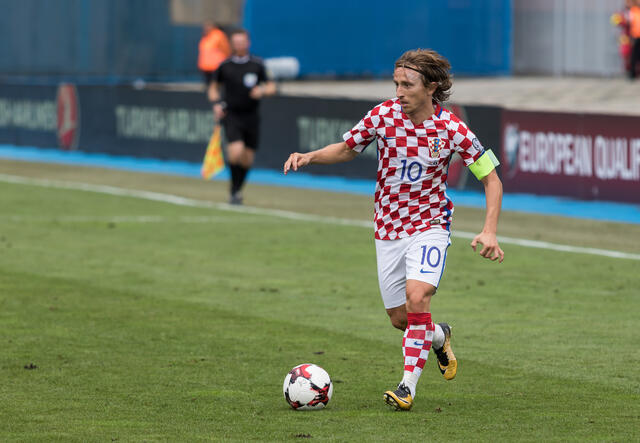
During the Croatian War of Independence, Modrić and his family were forced to flee their home. Modrić became displaced and lived with his family in hotels in Zadar, Croatia, for seven years.
Here, Modrić began playing football and developed his skills that led him to become one of the best midfielders in the world. In those years, thousands of bombs fell on the city and football was a way to escape the reality of war.
Modrić went on to play for some of the top clubs in the world and win the FIFA award for Best Men's Player. In the 2018 World Cup, Modrić took Croatia to the finals, after which he received the Ballon d’Or award for best player of the year. He was the first player in a decade, other than the great Lionel Messi and Cristiano Ronaldo, to claim the award.

Representative Naquetta Ricks is the first African immigrant to be elected to the Colorado Legislature, and the first Liberian American to be elected to any state legislature. When she was only 13, she was forced to flee civil war in Liberia, and her family settled in Aurora, Colorado.
Representative Ricks earned her undergraduate degree in accounting at MSU, and her MBA from the University of Colorado Denver. She then went on to operate a successful small mortgage brokerage business and found the African Chamber of Commerce, Colorado USA.
As a leading Black woman in business and politics, she works tirelessly to improve her community by helping build economic knowledge and by championing the rights of immigrants and refugees. In her first session in the Colorado legislature, she led the fight on groundbreaking legislation including the creation of the Immigration Legal Defense Fund and the Diverse K-12 Workforce Report.
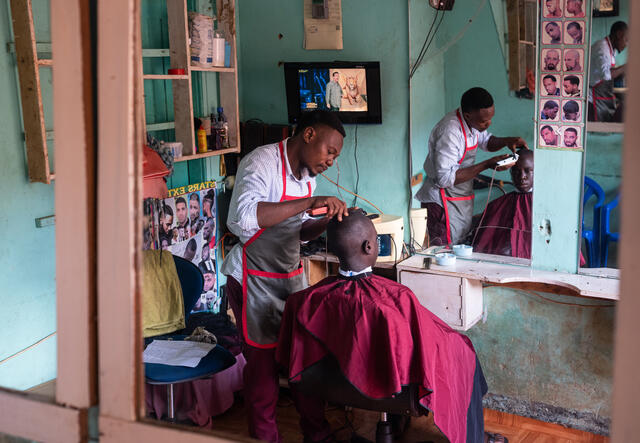
24-year-old Nelson fled his home in the Democratic Republic of Congo (DRC) after his uncle was killed for his work as a lawyer and his entire family was threatened.
When Nelson arrived in Kampala, he knew that he needed to learn English and find a job. Having had some experience cutting hair in the DRC, he used what little money he had - not to buy new clothes or a mobile phone - but to buy a pair of hair clippers.
With his hair clippers in hand, he started going door to door asking people if they would like their hair cut. As he started to earn some money, he dreamt of opening his own hair salon in Kampala.
Through the FIND programme, he was paired with mentor Nabaasa Allen, owner of New Star Salon. Nabaasa shared skills that enabled Nelson to expand his barber shop into a unisex salon that serves his new community.
Nelson’s favourite part of the job is seeing the joy on his clients’ faces when he shows them their new hairstyles. “It’s not only the customer that feels good, but by yourself, you feel now that you are confident.”
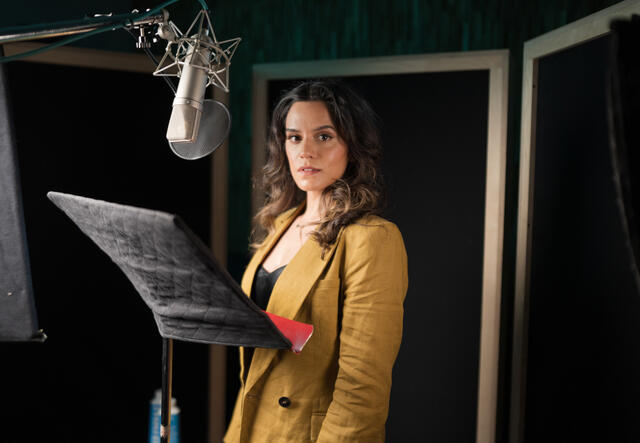
Sepideh was born in a refugee camp in Germany where her parents were living after being forced to flee Iran. After spending two years in Turkey, then Germany, seeking political asylum and claiming refugee status, they were granted visas to come to the U.S. There, they spent years rebuilding their lives from scratch in a foreign country.
Today, she is an Iranian-American actor and singer, an inspiring advocate for refugee rights, and an IRC ambassador.
“How come I have the luxury of pursuing my dream while these equally exceptional human beings are suffering, and are refused a home and basic human rights as they endure unimaginable hardship resulting from the same circumstances my family endured?” Sepideh asked in a first-person essay she published on her own plight as a refugee.
“Being a refugee has shaped my life and I feel fiercely moved to not only help destigmatise but also humanise our struggling brothers and sisters around the globe.”
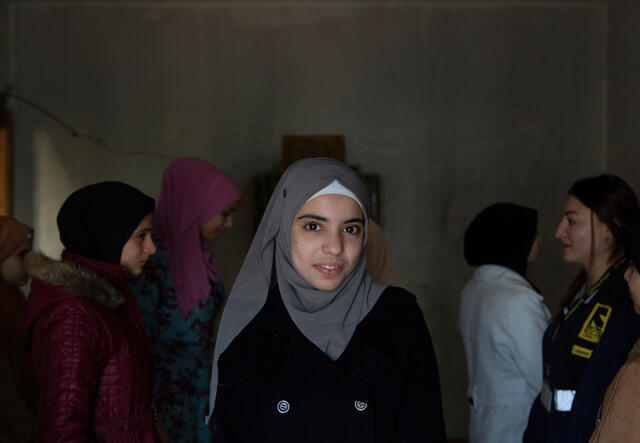
Sabah is a 15-year-old Syrian girl who was displaced, and now lives in Lebanon with her family. Sabah was already engaged to a man from her community when she started taking part in the IRC’s activities at a women’s safe space.
After participating in reproductive health sessions, self-esteem and decision-making sessions, she learnt that education is one of her rights as a girl, and decided that she did not want to get married so young. The sessions helped Sabah develop her support network as well as her trust in her parents, and she gained the confidence to open up to them, telling them that she wanted to decide her own future.
With her parents' support, Sabah called off the marriage in order to resume her education. After school, her dream is to mentor other refugees with the IRC in Lebanon.
“There is no difference between a boy and a girl,” Sabah says. “They are the same in every aspect, and like a boy has rights, a girl has rights too. I’ve learnt that a woman should be firm and defend her rights.”
*Name changed to protect the client.
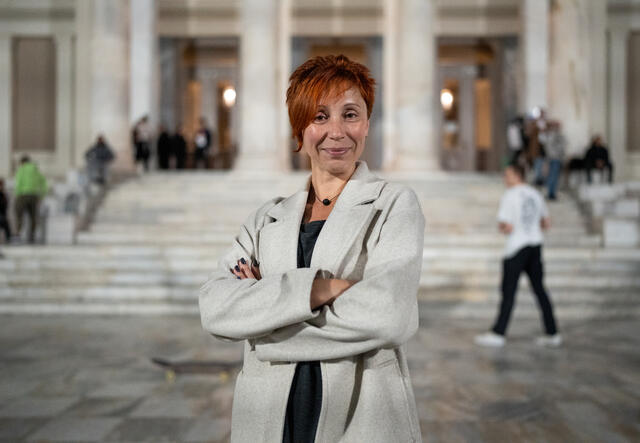
One year ago, Nataliia was forced to leave her home due to the war in Ukraine. She headed for Greece. Now, she tells the story of Ukraine through theatre in Athens, where she’s part of a production about the war. She works as an actress, drama teacher and a public speaking instructor.
She clearly remembers the day the war escalated on 24 February 2022; explosions had started at 5 am, and by 9 am there was armed fighting near her house. After 10 days, she was finally able to evacuate but she had to leave her life, her home and her family behind.
When Nataliia arrived in Greece, she began attending the Citi Foundation-funded IRC livelihood programme, Craft Your Business (CYB), and also took part in an IRC Greek language course so she could fully understand and immerse herself in scripts for her acting roles. With the help of the skills she learned through the livelihood programme, Nataliia also opened her own public speaking teaching business.
Being able to continue pursuing her acting career in Athens, she is passionate about spreading awareness about Ukraine in Greek society. “I really want to tell them how it really is, how things really are on the one side and on the other,” Nataliia says, “I want people to understand what is happening there, why and how.”